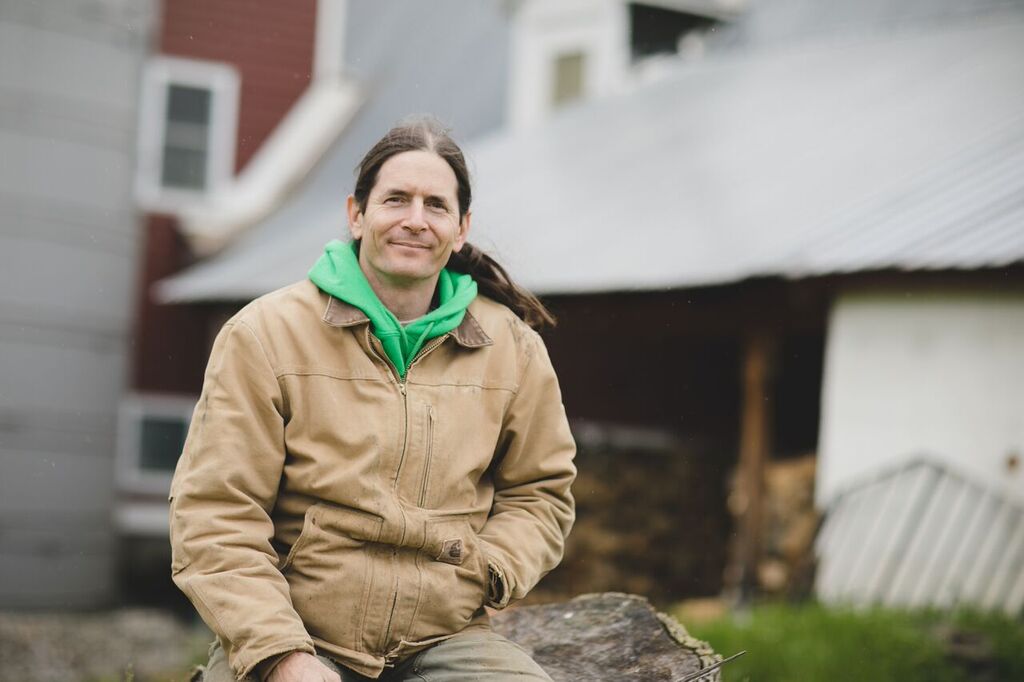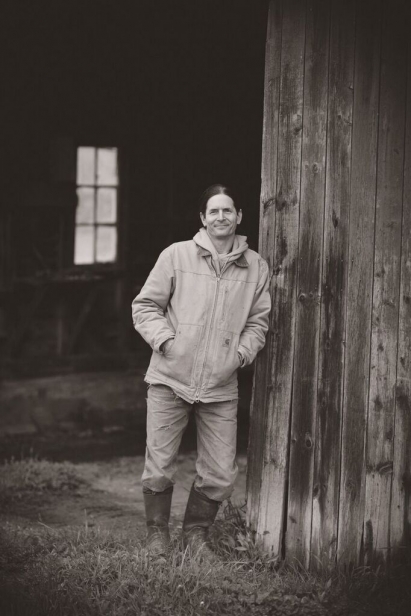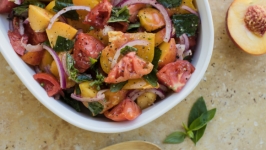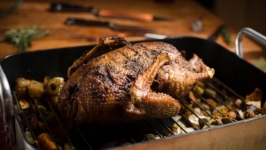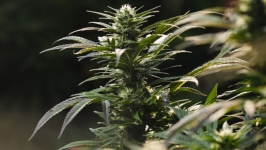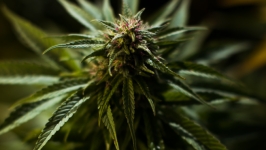Lieutenant Governor David Zuckerman—Raising Crops, Raising Consciousness
David Zuckerman views politics as a marathon, not a race, and he’s in it for the long haul. He served in the House of Representatives for seven terms, from 1997 to 2010, and two terms in the State Senate from 2013 to 2016. Elected in November as the state’s lieutenant governor, Zuckerman is the first active farmer in nearly 75 years to hold that office. He has run Full Moon Farm for nearly 20 years with Rachel Nevitt, his wife and farming partner.
Zuckerman believes that what we do in Vermont can resonate around the country, and he has seen the level of citizens’ engagement rise since the fall elections. “People are moving here because of the values we espouse, and we need to welcome them and help them become invested members of our communities.”
The day we met exemplified his own dedication. On that late-winter Sunday, Zuckerman was serving as governor while Phil Scott was on business in Washington. Zuckerman had spent the morning at the Governor’s Institute at Goddard College, drove midday to speak in Hartland about the next generation of leadership, and then, as the afternoon drew to a close, he made time to speak at length with me. When you’re a public servant like Dave Zuckerman, there’s no such thing as a day off.
Edible Green Mountains: Share a bit about the young David Zuckerman.
David Zuckerman: I grew up in Brookline, Massachusetts, and spent summers at my mother’s home in Virginia’s Shenandoah Valley. We had huge gardens and 11 acres of woods and streams to explore. That was a welcome change from urban living and planted the seed for farming. My dad was a doctor and my mom served on the school board and had a PhD in biochemistry. We always had lively debates over dinner.
When I arrived at UVM in 1989, I thought I’d be a doctor like my dad. I studied chemistry but after a year and a half, I realized I needed to redirect and I took some time off. I worked in a pallet factory in Virginia then hiked the Appalachian Trail for five months. That journey helped me refocus my life. I returned to UVM and changed my major to environmental studies with a minor in chemistry.
EGM: How did UVM prepare you for your dual careers in ag and politics?
DZ: Environmental science introduced me to GMOs. In one course, we studied the Flavr Savr tomato, the first commercially grown genetically modified food. That was pretty eye-opening. As for politics, I got involved in student government in 1992 and focused on campus concerns involving social justice and environmental issues. That same year, I volunteered for Bernie Sanders’ campaign. I registered hundreds of voters and started to meet people in the Burlington political scene. I ran for House in 1994 during my senior year, coming in third and losing by 59 votes. I ran two years later and have been involved ever since.
EGM: Mentors as you began your political career?
DZ: Bernie Sanders. He proved you didn’t have to be a wishy-washy corporate party politician. He was inspirational because he said what he believed about issues and fought for those beliefs. My mom also—she was dogmatic about knowing the facts and arguing your points.
EGM: Best parts of your job?
DZ: Getting out to meet people and having the chance to inspire them to engage in the political process.
EGM: Your legacy in Vermont politics?
DZ: It’s too soon to have a legacy, and that’s up to other people to decide. The goal is to get done what I can. I have been outspoken on a number of issues and because I’ve been in office this long, I’ve been able to see them to fruition, such as end-of-life choice and the civil unions and marriage equality in 2005. I’m proud of bringing GMO labeling legislation to the fore in 1999. Getting major companies to change their labels and acknowledging this was the right thing to do was absolutely amazing, but then to have Congress and corporate money overturn it and change the outcome was frustrating to say the least. But at least we’ve moved the ball down the road.
EGM: What distinguishes Vermont from the other 49?
DZ: What doesn’t?? Our civility in politics rises above the norm. We have large non-Republican majorities in the House and Senate and still have Republican committee chairs, which doesn’t happen in many other states, and that’s a symbol of how we value the skills and knowledge people bring, regardless of party label.
EGM: Advice to citizens?
DZ: Democracy encourages participation. Vermont has so many organizations that allow people to engage on a grassroots level. Get involved with whatever your passion is and give half an hour a week.
EGM: Let’s talk about farming! Any pivotal moments?
DZ: I worked on a start-up farm in 1994 and then went to Golden Russet Farm in Shoreham in 1996. Will Stephens was definitely my farm mentor, and I soaked up all I could from Will and Judy. Now we’re like brothers. I was serving in the House and working seasonally at Will’s farm. People called me “W.I.T.” or Will in Training. Later when Will entered politics, he was on the ag committee which I chaired. People joked and called him “D.I.T,” or Dave in Training.
EGM: And your evolution from the Intervale to Hinesburg?
DZ: Full Moon Farm began at the Intervale in 1999. The incubator program gives a person a chance to see if he or she can make it as a farmer. Can you produce the food, market it successfully and turn a profit? Rachel and I stayed there 10 years. We moved to Hinesburg in 2009 and now raise certified organic chickens, pastured pork and 20 acres of veggies. And we have 250 CSA shares.
EGM: Why did you choose the name Full Moon Farm?
DZ: I’ve always been enamored of the power of the moon in a dark rural environment. Certainly in agriculture, moon cycles have tremendous history. The full moons reflect the agricultural cycle of the year—the planting moon, strawberry moon, harvest moon. The celestial world puts our size and importance into perspective. It reminds me that I’m just a blip and should do what I can while I’m here.
EGM: How do you and Rachel share farm responsibilities?
DZ: By necessity, we’re jacks and queens of all trades. I oversee the field production, tractor work, planning and layout of the fields, and the farmers’ market. I’m at the Burlington Farmers’ Market most of the 40 Saturdays it runs, even if I can’t stay the whole time. Rachel handles seed ordering, the CSA and website marketing, greenhouse management, harvesting, crew, and post-harvest management of crops. She also operates the summer camp we run.
EGM: Most significant challenge facing Vermont agriculture?
DZ: Across the board, farm labor but especially on dairy farms. People want farms to be environmentally sustainable and to pay workers a fair wage, but we need to find a way to have the price of food reflect that desire. Affordable food that reflects our values is the biggest challenge we face as an agricultural community.
EGM: Describe yourself as an eater and cook.
DZ: I’m an opportunivore. At home we use organic ingredients we’ve either grown or bought. We raise 50 varieties of organic veggies, chicken and pork, so that’s a good starting point. Away from home I prefer organic but eat whatever is available.
EGM: Favorite meals?
DZ: Country-style ribs and Rachel’s pulled pork. She makes a killer braided cinnamon bread that’s extraordinarily decadent and doesn’t need icing. We are butter fiends and go through about two pounds a week.
EGM: What’s the division of labor at home?
DZ: Rachel is a phenomenal cook and I am pathetic. But I do wash a mean dish. She instigates the laundry and I do the folding. I stay on top of the physical and mechanical work. And I make Rachel’s coffee even though I don’t drink it.
EGM: Ideal weekend at home with the family?
DZ: I’m still dreaming of that ever happening…
FIVE RAPID FIRE
Breakfast today? Homemade lemon poppy seed muffins and our sausage.
Favorite childhood meal? Frosted Flakes.
Cake, pie or cookies? Do I have to choose?? Rachel makes a winter squash pie with red kuri or sunshine kabocha squash. Apple pie, too.
Guilty pleasure? There’s no guilt, just pleasure!
Midnight snack? I usually eat late so there’s not much snacking.
Maria Buteux Reade never thought she’d be swapping stories about on-farm poultry processing with a lieutenant governor. Just one more reason she loves Vermont.


